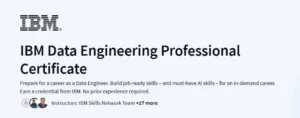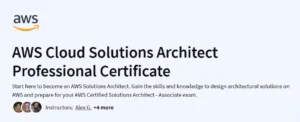Modern CMake for C++
An in-depth, project-driven CMake course that equips you to manage complex C++ build systems with modern best practices and cross-platform support.
What will you learn in Modern CMake for C++ Course
Grasp modern CMake fundamentals: targets, properties, and the “target‐based” approach
Structure cross‐platform C++ projects with out-of-source builds and customizable build types
Manage dependencies seamlessly using
find_package,FetchContent, andadd_subdirectory
Configure and generate IDE project files (Visual Studio, Xcode) and Ninja/Make workflows
Leverage advanced features: generator expressions, imported targets, custom commands, and toolchain files
Program Overview
Module 1: Introduction to Modern CMake
⏳ 1 week
Topics: CMake philosophy, version 3+ improvements, basic
CMakeLists.txtstructureHands-on: Convert a “hello world” Makefile project into a simple CMake project
Module 2: Targets & Properties
⏳ 1 week
Topics:
add_libraryvs.add_executable,target_include_directories,target_compile_featuresHands-on: Define a static library and executable target, set per-target compiler options
Module 3: Dependency Management
⏳ 1 week
Topics:
find_packagefor system libs,FetchContentfor remote sources, interface vs. public vs. privateHands-on: Integrate GoogleTest and fmtlib into your project using both approaches
Module 4: Build Configuration & Generators
⏳ 1 week
Topics: CMake presets, build types (
Debug,Release), multi-generator support (Ninja, VS)Hands-on: Create build presets and generate Ninja and Visual Studio solutions
Module 5: Custom Commands & Code Generation
⏳ 1 week
Topics:
add_custom_command,add_custom_target, host tools vs. cross-compilationHands-on: Auto-generate a header via a Python script at build time
Module 6: Testing & Packaging
⏳ 1 week
Topics:
enable_testing,add_test, CTest integration,CPackfor installers and packagesHands-on: Add a test suite with CTest and create a ZIP/TGZ package via CPack
Module 7: Advanced Features & Toolchain Files
⏳ 1 week
Topics: Generator expressions, imported targets, cross-compile toolchains, presets for embedded builds
Hands-on: Write a toolchain file for cross-compiling to an ARM target
Module 8: Capstone Project – Multi-Module C++ App
⏳ 1 week
Topics: Structuring a large codebase, isolation of third-party libs, reproducible builds
Hands-on: Build and package a sample multi-module C++ application (e.g., CLI + library + tests)
Get certificate
Job Outlook
Mastery of modern CMake is vital for C++ roles in systems, embedded, and application development
Roles include Build Engineer, DevOps Engineer, Embedded Software Developer, and C++ Architect
Salaries range from $90,000 to $160,000+ based on domain and experience
Strong CMake skills ensure reproducible builds, easier CI/CD integration, and cross-platform support
- Emphasizes modern, target-based CMake best practices over legacy patterns
- Covers dependency management and cross-compilation with real-world examples
- Capstone project ties together all advanced features into a cohesive workflow
- Assumes familiarity with C++ and command-line tools
- Limited coverage of IDE-specific CMake nuances beyond presets
Specification: Modern CMake for C++
|
FAQs
- Basic knowledge of C programming is recommended, but prior CMake experience is not required.
- The course introduces modern CMake concepts step by step for building and managing projects.
- Beginners can follow along with hands-on examples to understand project configuration.
- Familiarity with command-line tools can help navigate CMake workflows efficiently.
- By the end, learners can configure, build, and maintain C projects using modern CMake practices.
- Yes, the course covers creating project structures and managing builds with CMake.
- Learners practice writing
CMakeLists.txtfiles and organizing source files. - Techniques for defining targets, linking libraries, and handling dependencies are included.
- Hands-on exercises demonstrate building projects efficiently and consistently.
- Advanced project configurations may require additional exploration.
- Yes, the course teaches linking external libraries and managing dependencies in CMake.
- Learners practice using
find_package,target_link_libraries, and proper include paths. - Techniques ensure modular and maintainable project setups.
- Hands-on examples help integrate third-party libraries seamlessly into projects.
- Complex dependency management may require further learning or real-world practice.
- Yes, the course teaches build configurations for different environments and platforms.
- Learners practice creating debug, release, and custom build types.
- Techniques include conditional compilation, caching, and generator expressions.
- Hands-on exercises ensure efficient, reproducible, and cross-platform builds.
- Advanced optimization and multi-platform setups may require additional practice.
- Yes, the course equips learners with modern CMake skills essential for professional development.
- Learners gain knowledge of project organization, dependency management, and build automation.
- Hands-on exercises provide real-world experience for industry-level projects.
- Skills help maintain scalable, modular, and maintainable C codebases.
- Advanced project setups may require additional exploration of complex CMake features.





